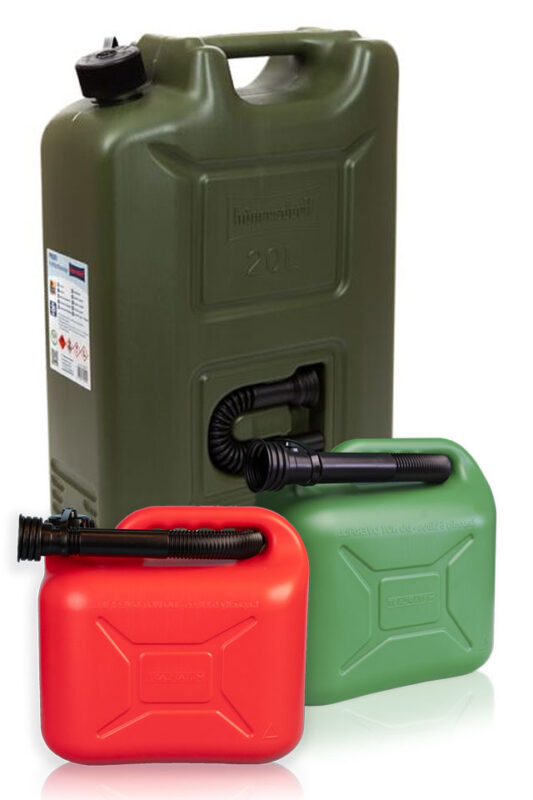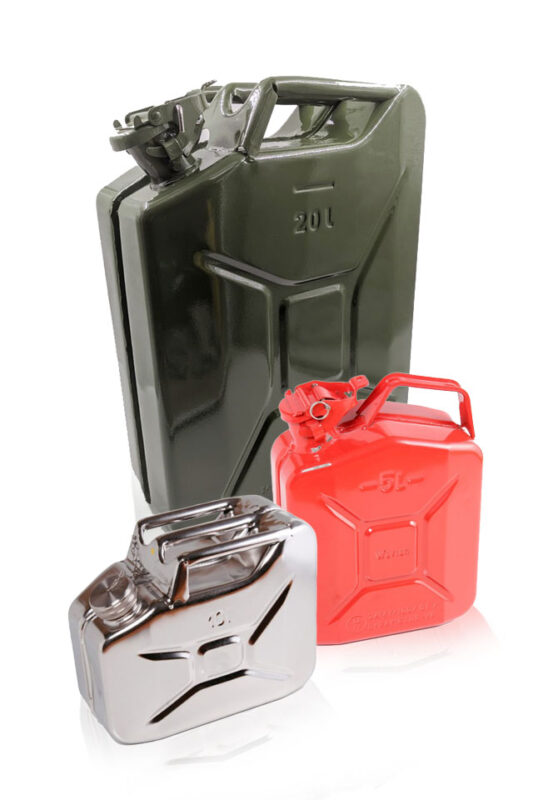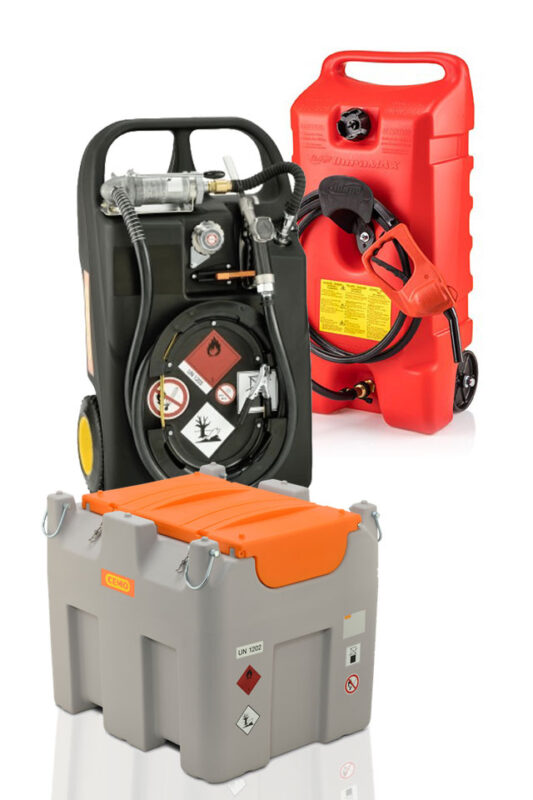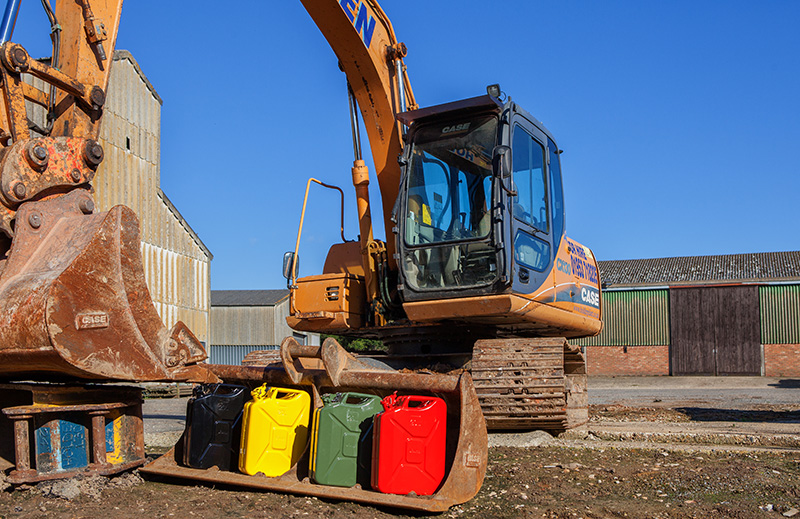Fuel Cans
What Are The Rules For Fuel Storage In The UK?
In the United Kingdom, the storage of fuel, whether it’s for domestic or commercial purposes, is governed by specific legislation to ensure safety, environmental protection, and compliance with regulations. For domestic users, this legislation primarily focuses on the safe storage of small quantities of fuel such as heating oil or gas cylinders, aiming to prevent accidents and environmental hazards. On the other hand, commercial fuel storage regulations are more comprehensive and stringent, covering larger quantities of fuel stored in various facilities like petrol stations, warehouses, and industrial sites. These regulations are designed to mitigate risks associated with fuel storage, including fire hazards, leaks, and pollution, while also ensuring that businesses adhere to best practices to protect both public safety and the environment.
| Type of Fuel | Domestic Storage Limit (Litres) | Commercial/Workplace Storage Limit (Litres) |
|---|---|---|
| Petrol | Up to 30 litres in approved containers | Varies based on storage system and local regulations; often limited to thousands of litres for larger facilities like petrol stations |
| Diesel | Up to 30 litres in approved containers | Varies based on storage system and local regulations; often limited to thousands of litres for larger facilities |
| Heating Oil | Up to 2,500 litres in a single tank | Varies based on storage system and local regulations; often limited to larger capacities for commercial facilities |
| LPG (Liquefied Petroleum Gas) | Up to 50 litres in approved cylinders | Varies based on storage system and local regulations; often limited to large storage tanks for commercial use |
| Aviation Fuel | Not typically stored at home | Varies based on type of facility and regulations; often limited to thousands of litres for airports and aviation facilities |
| Biofuels | Up to 30 litres in approved containers | Varies based on storage system and local regulations; similar to petrol and diesel limits |
Storing Fuel At Home
Storing fuel at home requires careful consideration to ensure safety and compliance with UK regulations. Whether you’re using heating oil, petrol, or diesel for domestic purposes, proper storage is crucial to prevent accidents, spills, and environmental hazards. Here are some guidelines for storing fuel at home:
Safety Considerations
- Location: Choose a well-ventilated and cool area away from living spaces, electrical outlets, and ignition sources. Avoid storing fuel in basements or attics.
- Containers: Use only approved containers specifically designed for fuel storage. Never use containers that previously held food or beverages.
- Quantity: Store only the amount of fuel you need. Avoid stockpiling excessive amounts, as this can increase the risk of accidents.
- Labelling: Clearly label all fuel containers with the type of fuel and date of purchase to avoid confusion and ensure proper use.
- Children and Pets: Keep fuel containers out of reach of children and pets. Store them in a locked cabinet or shed if possible.
Guidelines For Different Types Of Fuel Containers
Plastic Fuel Tanks
- Material: Ensure the tank is made of high-quality, durable plastic designed for fuel storage.
- Capacity: Choose a size that suits your needs without exceeding the recommended capacity for domestic storage.
- Maintenance: Regularly inspect for cracks, leaks, or damage. Replace any damaged tanks immediately.

Metal Fuel Tanks
- Material: Opt for corrosion-resistant metals like steel or aluminium.
- Ventilation: Ensure the tank has proper ventilation to prevent the buildup of fumes.
- Protection: Use rust-resistant coatings or treatments to prolong the lifespan of the tank.

Demountable Fuel Tanks
- Installation: Follow the manufacturer’s guidelines for installation and placement.
- Security: Secure the tank to prevent theft or tampering. Consider using locking mechanisms or alarms.
- Maintenance: Check regularly for wear and tear, leaks, or damage. Replace any worn-out parts or components.
Other Petrol Containers
- Approved Containers: Only use containers that meet British Standard BS 5908 or are approved by the Petroleum Equipment Institute (PEI).
- Sealability: Ensure the container has a tight-sealing cap to prevent spills and evaporation.
- Storage: Store containers upright to prevent leakage and keep them in a stable position to avoid tipping over.

By following these guidelines and safety considerations, you can ensure that fuel storage at home is done responsibly and safely. Always remember to check local regulations and guidelines, as requirements may vary depending on your location and specific circumstances. Regular maintenance and inspections are key to preventing accidents and ensuring the longevity of your fuel storage containers.
Storing Fuel At Work
Storing fuel at work requires strict adherence to regulations and best practices to ensure the safety of employees, customers, and the environment. Whether you’re operating a petrol station, industrial facility, or any other commercial establishment that requires fuel storage, it’s essential to implement proper storage solutions and safety measures. Here are guidelines for storing fuel at work:
Safety Considerations
- Location: Choose a designated, well-ventilated area away from high-traffic zones, ignition sources, and other hazardous materials.
- Containers and Tanks: Use only approved and certified containers, tanks, or storage systems designed for commercial fuel storage.
- Quantity Limits: Adhere to quantity limits specified in regulations and avoid overstocking to minimise risks.
- Labelling and Signage: Clearly label all storage containers, tanks, and areas with safety information, fuel type, and emergency contact numbers.
- Spill Containment: Implement spill containment measures such as berms, drip trays, or spill kits to quickly respond to spills and leaks.
- Fire Safety: Install fire extinguishers, alarms, and suppression systems appropriate for flammable liquids.

Guidelines For Different Types Of Fuel Storage Solutions
Underground Storage Tanks (USTs)
- Installation: Ensure proper installation by certified professionals following regulations like the Control of Pollution (Oil Storage) (England) Regulations 2001.
- Monitoring: Implement leak detection systems and regular monitoring to detect leaks or failures promptly.
- Maintenance: Schedule routine inspections and maintenance by qualified technicians to ensure the integrity of the tank and associated equipment.
Aboveground Storage Tanks (ASTs)
- Material: Choose corrosion-resistant materials like steel or fibreglass that comply with relevant standards such as BS EN 12285 or API 650.
- Secondary Containment: Provide secondary containment measures like bunded areas or double-walled tanks to prevent spills and leaks.
- Inspection: Conduct regular inspections for signs of corrosion, leaks, or damage. Replace or repair any faulty components immediately.
Drum Storage
- Material: Use steel or plastic drums specifically designed for flammable liquids, complying with standards such as BS EN 2106 or BS EN 2107.
- Stacking: Store drums securely on pallets or racks to prevent tipping or damage.
- Handling: Use proper lifting equipment and procedures to avoid accidents during drum handling and transportation.
Portable Fuel Tanks
- Material: Choose high-quality, durable materials like steel or aluminium.
- Capacity: Adhere to capacity limits and ensure tanks are properly vented to prevent pressure buildup.
- Security: Secure tanks to prevent unauthorised access or theft. Use locking mechanisms or surveillance systems for added security.
By following these guidelines and safety considerations, businesses can ensure compliant and safe fuel storage practices at work. It’s crucial to stay informed about local regulations, conduct regular training for employees, and maintain a proactive approach to fuel storage safety to prevent accidents, environmental damage, and legal liabilities.

